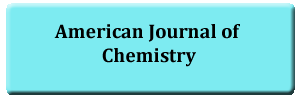Effectiveness of Integrating Indigenous and External Methods on Post-harvest Shelf-Life of Food Crop Preservation and Storage in the Lower Boyo, North West Region, Cameroon
DOI:
https://doi.org/10.20448/808.5.1.36.46Keywords:
Indigenous knowledge integration, Adapted methods, Scientific methods, Shelf-life extension, Lower Boyo.Abstract
For the last three decades, about 95% of investment in agricultural research has focused more on increasing production with only about 5% on reducing post-harvest losses in Sub-Sahara Africa. This study aim at exploring the various types of indigenous knowledge systems(IKs) use on food crop preservation, storage and the extent to which they are integrated with the external methods for shelf-life extension. The study sampled eleven out of the nineteen villages that make up the Lower Boyo Division in the Northwest Region of Cameroon. A three-stage sampling techniques were employed using both purposive, random and snowball sampling techniques to arrive at the sample size of 180. Questionnaires were analysed using Excel spreadsheet and data transform into tables and pie charts. This study found that about 17 types of IKs, 07 external knowledge (EK) and 07 adaptive methods were used. Also, the integration of IKs with EK has led to the shelf-life extension of food crops with majority of farmers being able to store their food crops for more than ten months. The results of this study have help to establish a linked between IKs practices and the external EK in improving shelf-life extension in the developing countries. We therefore recommend that a participatory approach should be encouraged when it concern the integration of IKs with EK to better enhance the shelf-life extension of foodstuffs in rural areas where access to farming inputs and farming skills still remain challenging.

